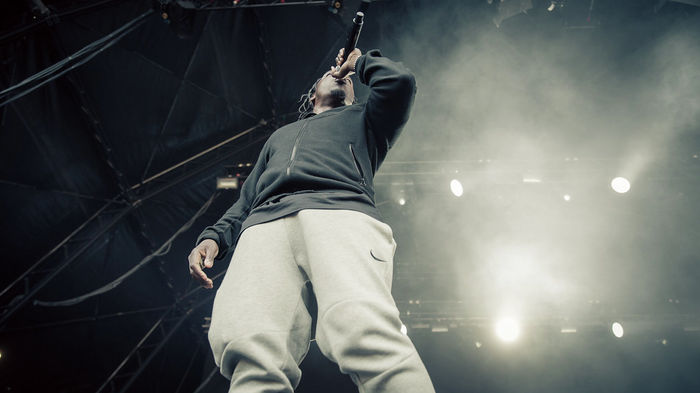We shouldn’t expect Eurovision to be apolitical
Just like any other form of art, we can’t demand that music put aside everything ‘political’, argues Gabriel Humphreys

Content Note: This article contains discussion of the Armenian Genocide and the Russian invasion of Ukraine.
As a footnote to the political turmoil and human tragedy initiated by Russia’s full-scale invasion of Ukraine on 24th February, two days later Russia was excluded from the Eurovision Song Contest 2022. The move drew everything from mockery to praise for the efficacy of cultural sanctions alongside financial ones. But the move also exposes a critical hypocrisy in the fabric of the Eurovision Song Contest (ESC) — its claim to be a “non-political event”.
Recently, it’s been hard to believe that the European Broadcasting Union (EBU), who run the competition, has the audacity to call itself an “apolitical” organisation, a claim it repeats even in the same statement which expels Russia.
There has been much political strife throughout Eurovision’s 65-year history. Lyrics were an issue for Armenia’s 2015 entry “Don’t Deny” which, alongside the title, many believed referenced the 1915 Armenian Genocide, an event which the Turkish government has maintained cannot be defined as such, and the centenary of which was commemorated the same year. The song subsequently received a name change to “Face the Shadow”, before it was even presented to the public.
“Geopolitical tensions and friendships shape the politics of the contest”
Geopolitical tensions and friendships shape the politics of the contest too. Armenia and Azerbaijan’s tense relationship has repeatedly played out on the Eurovision stage, with people located in Azerbaijan who voted for Armenia’s entry in 2009 being allegedly questioned by police.
Israel’s place in the contest has also remained a contentious issue for some, with a number of fans on social media even questioning the ethics of excluding Russia from the contest while allowing Israel to participate.
Positive historical relationships also carry weight — the voting blocs of the Nordic countries, the Balkans and former Soviet countries still hold some sway, while Greece and Cyprus so reliably vote for one another that in 2021 their respective 12 points to each other were met with groans from the audience.
The ESC was created as a post-war project to foster collaboration and unity but, on a continent where neighbourly friendships and rivalries thrive, was it ever reasonable to expect it to be able to present a vision of European unity, where so many alliances and unions had failed before it? It’s almost flippant to think that old and deep cultural and political ties and scars could be so easily pushed aside.
More crucially, should we really expect the musicians to leave everything “political” behind? Art is inherently political. They are all artists and isn’t it wrong to demand even the nul pointers leave this facet of their work behind?
“Be it in lyric, form, or merely existence, these songs are political entities in and of themselves”
Even songs seen as vapid are often cultural and political critiques that fly under the radar. Cardi B and Megan Thee Stallion’s “WAP” was derided by some as vulgar and overly sexualised, explicit simply for the sake of being explicit. But that was exactly the point — male artists had been talking in the same tone unremarkably for decades — the very existence of the song itself is a political statement. The same applies to the songs that countries bring to Eurovision. Be it in lyric, form, or merely existence, these songs are political entities in and of themselves.
Art is also subjective, and what is “political” to some is not for others. Take Armenia’s 2010 entry, “Apricot Stone”, which attracted ire even before its more contentious 2015 counterpart. Some in Turkey alleged that it too contained veiled references to the Armenian Genocide, which the artist vehemently denied. For pieces of art to meet everyone’s requirements as apolitical, we would have to leach all meaning, imagery, emotions — all humanity from them.
I don’t mean to come across as a heartless cynic — culture can be an important force for positive change and for unity, both political and social. But we are naive to think that organisations like the ESC can be a solution for European disunity, least of all when they are deprived of any political dimension.
Some polls predict a Ukrainian win this year, and they are leading in the bookies’ odds. Under the same predictions, I saw some commenting that it would be wrong for Ukraine to win just because of “political reasons”, and lamenting that it should be a music contest, won by the song judged to be best. It is, remarkable as it may seem, possible for a song to have both artistic and political merit.
Eurovision was born from a period of such intense strife and destruction that it seemed, despite our differences, that we could never allow ourselves to fight again. Russia has proven this notion is not as indestructible as we like to think. Equally, history has taught us that Eurovision cannot avoid politics, and likely never could. More pressingly, we shouldn’t demand that it does. Doing so denies music its power and value as an artistic medium, and paints us as fools.
 News / Candidates clash over Chancellorship25 April 2025
News / Candidates clash over Chancellorship25 April 2025 News / Cambridge professor paid over $1 million for FBI intel since 199125 April 2025
News / Cambridge professor paid over $1 million for FBI intel since 199125 April 2025 Interviews / Dr Ally Louks on going viral for all the wrong reasons25 April 2025
Interviews / Dr Ally Louks on going viral for all the wrong reasons25 April 2025 Comment / Cambridge students are too opinionated 21 April 2025
Comment / Cambridge students are too opinionated 21 April 2025 News / Zero students expelled for sexual misconduct in 2024 25 April 2025
News / Zero students expelled for sexual misconduct in 2024 25 April 2025







